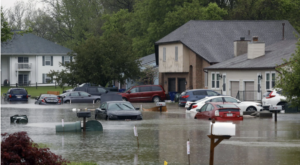Home insurance is an important part of a homeowner’s financial security. The structure of your home, your belongings, and your liability in the event of an accident on your property are all covered. These plans cover a wide range of risks, but it’s also important to understand that certain risks and situations are typically not covered. By understanding these exclusions, homeowners can take steps to reduce their risk and ensure they’re properly protected.
1. Why It’s Important to Understand Exclusions?
Homeowners need to know what their insurance doesn’t cover to avoid being hit with large bills during a disaster. Many people assume that their homeowner’s insurance covers all types of damage, but this isn’t always the case. By understanding the exclusions, homeowners can take steps to protect their property, make informed choices about additional coverage options, and plan for potential out-of-pocket expenses. Failure to understand these exclusions can cause stress and anger during difficult times.
2. Flood Damage:
One of the most important things that homeowners insurance does not cover is flood damage. Flooding is defined as water rising from the ground or overflowing from rivers and lakes. Most standard home insurance policies do not cover flood damage. People who live in areas where flooding is possible should consider purchasing a separate flood insurance policy from the National Flood Insurance Program (NFIP) or a private insurance company. It is important to plan and purchase flood insurance before a storm hits, as each policy has its own limits and waiting periods.
3. Earthquake Damage:
Like flood damage, earthquake damage is generally not covered by general home insurance. Some states may offer earthquake insurance as an add-on, but most people will need to purchase a separate policy to cover damage from an earthquake. This type of coverage protects a home from extensive repairs after an earthquake, especially in locations known to be at higher risk for earthquakes. Homeowners should understand the level of risk they are exposed to, depending on where they live, and consider purchasing earthquake insurance if necessary.
4. Wear and Tear:
Home insurance is not intended to pay for normal maintenance issues or damage caused by normal use. Typically, homeowners are responsible for damage caused by carelessness, age, or lack of maintenance. Problems such as peeling paint, rusty molding, or leaks on an old roof are common examples. Homeowners must be diligent in performing regular maintenance to avoid these problems and the problems that come with delays in completing repairs. Insurance is intended to cover accidents and disasters that you cannot prepare for, not problems that you can see.
5. Pest Problems:
Pests such as termites, rodents, and other pests often cannot repair the damage to your home. People who don’t take adequate precautions to keep pests out of their homes frequently cause pest damage. It is important to regularly inspect your property for signs of infestation and take action, such as hiring a pest control service, to prevent damage. If homeowners keep their homes in good condition and address any problems, pests are less likely to enter.
6. Negligent and Malicious Damage:
The majority of home insurance policies do not cover harm from careless or malicious behavior. When homeowners intentionally damage their property or fail to make necessary repairs, causing greater damage, insurance companies may not cover these issues. This exception illustrates the importance of being a diligent homeowner. Homeowners should address repair issues immediately and avoid allowing their insurance to become less effective.
7. Anything of Great Value:
Personal property insurance covers items you keep in your home, but many standard policies have restrictions on valuables such as jewelry, art, collectibles, and electronics. The value of these items often exceeds normal insurance limits, so homeowners may need to purchase additional insurance or “riders” to properly protect these valuables. Homeowners should list their valuables and discuss their coverage options with their insurance agent to ensure they are properly protected.
8. Business Operations:
If you have a home-based business, you should know that most home insurance policies do not cover losses that arise from your business. This includes damage to business property or liability claims that arise from business activities conducted on the property. People who operate a business out of their own homes may want to obtain a Business Owners Policy (BOP) or add an endorsement to their existing homeowner’s policy. This added protection can help protect the assets and liabilities of a business.
9. Natural Behavior:
Many home insurance policies cover losses from typical natural disasters such as fire, wind, and hail. However, some disasters, such as landslides, mudslides, and volcanic events, may not be covered. Homeowners should check their insurance to see what natural disasters are covered and consider getting additional coverage if they live in a location where they are more likely to be exposed to certain risks. Understanding these exceptions can help homeowners develop additional protection plans that are appropriate for their area.
Conclusion:
Homeowners need to be aware of common home insurance exclusions so they don’t end up with extra costs and ensure they have adequate coverage. By understanding these exclusions, homeowners can take proactive steps to reduce their risk and obtain additional coverage when needed. By reviewing your policy regularly and being honest with your insurance agent, people can get the coverage they need. Ultimately, knowing the limits gives homeowners the ability to protect their investments and maintain peace of mind as they become homeowners.
FAQs:
1. What Does Home Insurance Not Cover?
There are certain risks or situations that a regular home insurance policy does not cover. These are called “exclusions.” Homeowners need to be aware of these exclusions to avoid unexpectedly losing money.
2. Does homeowner’s insurance cover storm damage?
No, most regular home insurance policies do not cover flood damage. People who live in areas where flooding is possible should purchase personal flood insurance from the National Flood Insurance Program (NFIP) or a private insurance company.
3. Does my home insurance cover damage from an earthquake?
earthquake-related damage is typically not covered by regular home insurance. In areas with frequent earthquakes, homeowners may need to purchase separate earthquake protection insurance.
4. What types of damage are considered “wear and tear”?
Wear and tear refers to damage that results from aging, carelessness, or lack of maintenance, such as peeling paint, rusted pipes, or a leaky roof. These problems are usually not covered by homeowners insurance.
5. Does my home insurance cover defects?
Typically, pests like termites or rodents do not cause damage that homeowners insurance will pay for. Homeowners should take precautions to keep pests out.




